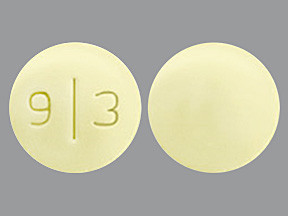MERCAPTOPURINE - ORAL
PHONETIC PRONUNCIATION: (mer-KAP-toe-PURE-een)
COMMON BRAND NAME(S): Purinethol, Purixan
GENERIC NAME(S): mercaptopurine
Uses
USES: This medication is used with other drugs to treat a certain type of cancer (acute lymphocytic leukemia). It is a chemotherapy drug that works by slowing or stopping the growth of cancer cells. Talk to the doctor about the risks and benefits of mercaptopurine, especially when used in children and young adults.
How to use MERCAPTOPURINE - ORAL
HOW TO USE: Read the Patient Information Leaflet if available from your pharmacist before you start taking mercaptopurine and each time you get a refill. If you have any questions, ask your doctor or pharmacist. Take this medication by mouth with or without food as directed by your doctor, usually once daily. Drink plenty of fluids while taking this medication unless otherwise directed by your doctor. Doing so may help decrease the risk of certain side effects (kidney problems). If you are using the suspension, shake the bottle well for at least 30 seconds before each dose. Carefully measure the dose using the provided special measuring device. Do not use a household spoon because you may not get the correct dose. Avoid getting any of the suspension on your skin or in your eyes. If contact occurs, wash the affected skin area or rinse your eyes with water. Consult your pharmacist for details. The dosage is based on your medical condition, weight, and response to treatment. Do not increase your dose or use this drug more often or for longer than prescribed. Your condition will not improve any faster, and your risk of serious side effects will increase. Use this medication regularly to get the most benefit from it. To help you remember, take it at the same time each day. Since this drug can be absorbed through the skin and lungs and may harm an unborn baby, women who are pregnant or who may become pregnant should not handle this medication or breathe the dust from the tablets.
Side Effects
Precautions
Interactions
Overdose
Images
Reviews
Faq for MERCAPTOPURINE - ORAL
Mercaptopurine is a medication that belongs to a class of drugs known as antimetabolites. It is used to treat certain types of leukemia and other cancers.
Mercaptopurine works by interfering with the growth of cancer cells and preventing their spread in the body. It inhibits the production of DNA and RNA, which are necessary for the reproduction of cancer cells.
Mercaptopurine is primarily used in the treatment of acute lymphoblastic leukemia (ALL), a type of blood cancer. It may also be used in other types of leukemia, as well as in inflammatory bowel disease such as Crohn's disease and ulcerative colitis.
Mercaptopurine is usually taken orally once daily. The dosage and duration of treatment will depend on your specific condition and response to the medication. It is important to follow your doctor's instructions and never adjust the dosage without consulting them first.
Common side effects of mercaptopurine include nausea, vomiting, loss of appetite, diarrhea, stomach pain, rash, hair loss, and increased susceptibility to infections. Rare but serious side effects may include liver problems, pancreatitis, and blood disorders. It is important to seek medical attention if you experience any severe or persistent side effects.
Mercaptopurine may interact with certain drugs, including certain antibiotics, anticancer drugs, and certain medications used to treat ulcerative colitis. It is important to inform your doctor about all the medications you are taking, including over-the-counter drugs and supplements, to avoid any potential interactions.
Mercaptopurine may harm an unborn baby, so it is generally not recommended during pregnancy unless the potential benefits outweigh the risks. It is also advised to avoid breastfeeding while taking mercaptopurine, as it may pass into breast milk and harm the nursing infant. It is best to consult your doctor for guidance if you are pregnant or breastfeeding.
The effects of mercaptopurine may not be immediate and may take several weeks or even months to show significant improvement. It is important to continue taking the medication as prescribed and not to stop abruptly without consulting your doctor.
It is generally advised to avoid or limit alcohol consumption while taking mercaptopurine. Alcohol may increase the risk of certain side effects and can also adversely affect liver function, which may be further impacted by the medication.
Disclaimer
IMPORTANT: HOW TO USE THIS INFORMATION: This is a summary and does NOT have all possible information about this product. This information does not assure that this product is safe, effective, or appropriate for you. This information is not individual medical advice and does not substitute for the advice of your health care professional. Always ask your health care professional for complete information about this product and your specific health needs.

No Reviews Yet